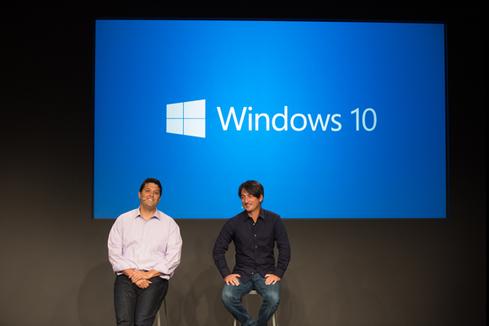10 Real Reasons Microsoft Skipped Windows 9
Many people are speculating why Microsoft skipped from Windows 8 to 10. Consider these colorful possibilities.


Windows 10: 11 Big Changes
Windows 10: 11 Big Changes (Click image for larger view and slideshow.)
As you undoubtedly heard by now, Microsoft can't count. Its next Windows iteration will not be Windows 9 or Windows 8.2. Instead it's skipping straight to 10. A lot of people are making fun of this. People like order, and skipping numbers bothers the kindergartner in all of us.
Microsoft hasn't been very forthcoming with the exact reason for the switch, though there are rumors it has to do with a Y2K-style problem with older versions of Windows 95 and 98 being referred to as Windows 9 in some scripts.
Personally, I don't buy that. It seems relatively easy to get around. But I did some research and I came up with some other possible reasons:
Top 10 (possibly true) reasons Microsoft is skipping Windows 9 and is going straight to 10.
1. They're hoping it will subliminally encourage critics to write that it is a "10 out of 10!"
2. The Japanese consider 9 to be an unlucky number because it sounds similar to the Japanese word for pain. What's Mr. T's prediction for Windows 9?
3. Microsoft is hoping to make up for tightening profits by selling super rare copies of Windows 9 on the collector's market.
4. Because 7 ate 9.
5. They were going to use Roman numerals and thought "Windows X" would draw a younger crowd. They also considered iNDOWS.
6. Ten matches the prediction of the number of people who will actually use it instead of XP.
7. Vista was taken.
8. When they named this one, they used Common Core math.
9. "Oh, let's just skip number 9." They did.
10. Because this version of Windows doesn't go to 11.
Let's face it, Microsoft has a long history of this. It went from counting to naming them after years like 95 and 98. Then it jumped to names like Vista only to settle back into numbers with Windows 7. You don't have any old copies of Windows 6 lying around, so why should you be bothered by the lack of Windows 9?
The truth is, this shows just how little a name matters to an operating system these days. Windows is Windows, and really Microsoft shouldn't care too much whether you're using 7, 8, or 10. They only care because of the expense of backwards compatibility and because of the security features in newer versions.
[For another take on why versions don't matter, see Windows 10, OS X, Lies, Damn Lies & Version Numbers.]
But consider how mobile phones have changed how software is marketed. The average consumers don't know what version of Android is running on their phones, nor do they shell out big bucks to go from one version to the next. The device updates the version for free. The same is true for other software on the phone. When you update Facebook or Twitter on your phone, does it even bother to tell you what version you are running? Mobile apps seemingly update daily. There's no fanfare.
Other than enterprises that have to prepare for certain major changes to operating systems, the idea of versions of software is dead. You just run Windows. The only reason to come out with a new "version" of software is to charge for it, and we've seen Microsoft lowering prices on operating systems recently, so that impulse is dying as a business reason.
With no reason for consumers to care and decreasing reason for Microsoft to care what version someone is running, numbers and names become increasingly meaningless. The real issue is getting you to buy the device with a Windows logo on it.
Of course, this begs the question of why 10 and not something snazzier like Windows Applekiller, or Windows Coolest Version Ever, or even just plain Windows. Probably the answer is that 10 is a round number and Microsoft couldn't come up with anything that tested better.
Personally, I'd like Microsoft to drop the Windows brand entirely and call its operating system "Cortana," but I don't see that happening anytime soon.
What do you think? Why 10? Does it bother you that it isn't 9? Does it change your perception of 10? Do you plan on using it? Tell us in the comments.
Enterprise social network success starts and ends with integration. Here's how to finally make collaboration click. Get the new Enterprise Social Network Success issue of InformationWeek Tech Digest today. (Free registration required.)
About the Author
You May Also Like






